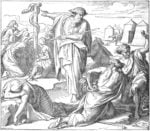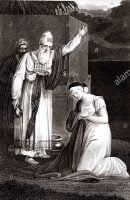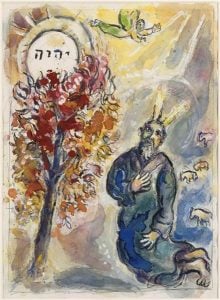Rosh HaShanah: The Beginning of Change II
Abstract This essay explores the profound connections between language, philosophy, physics, and spirituality in the context of Rosh HaShanah. By examining the linguistic roots of
Abstract This essay explores the profound connections between language, philosophy, physics, and spirituality in the context of Rosh HaShanah. By examining the linguistic roots of

The spectacle of the universe becomes so much the grander, so much more beautiful, the worthier of its Author, when one knows that a small

So the present passed over before him; and he himself lodged that night in the camp. And he rose up that night, and took his

A Study in Form and Matter And Moses prayed for the people. And the Eternal said unto Moses: “Make thee a fiery serpent, and set it

And out of the ground made the Lord G‑d to grow every tree that is pleasant to the sight, and good for food; and the

March 14 is celebrated by nerds around the world as the Pi Day. When written in digits, 3/14 represents first three digits of the number

The story of Sotah, a suspected adulteress, is very troubling on the first blush. Why would a woman be subjected to such humiliation? The Lubavitcher

…And behold, the thorn bush was burning with fire, but the thorn bush was not being consumed.” (Ex. 3:2) Every theologian worth his salt along